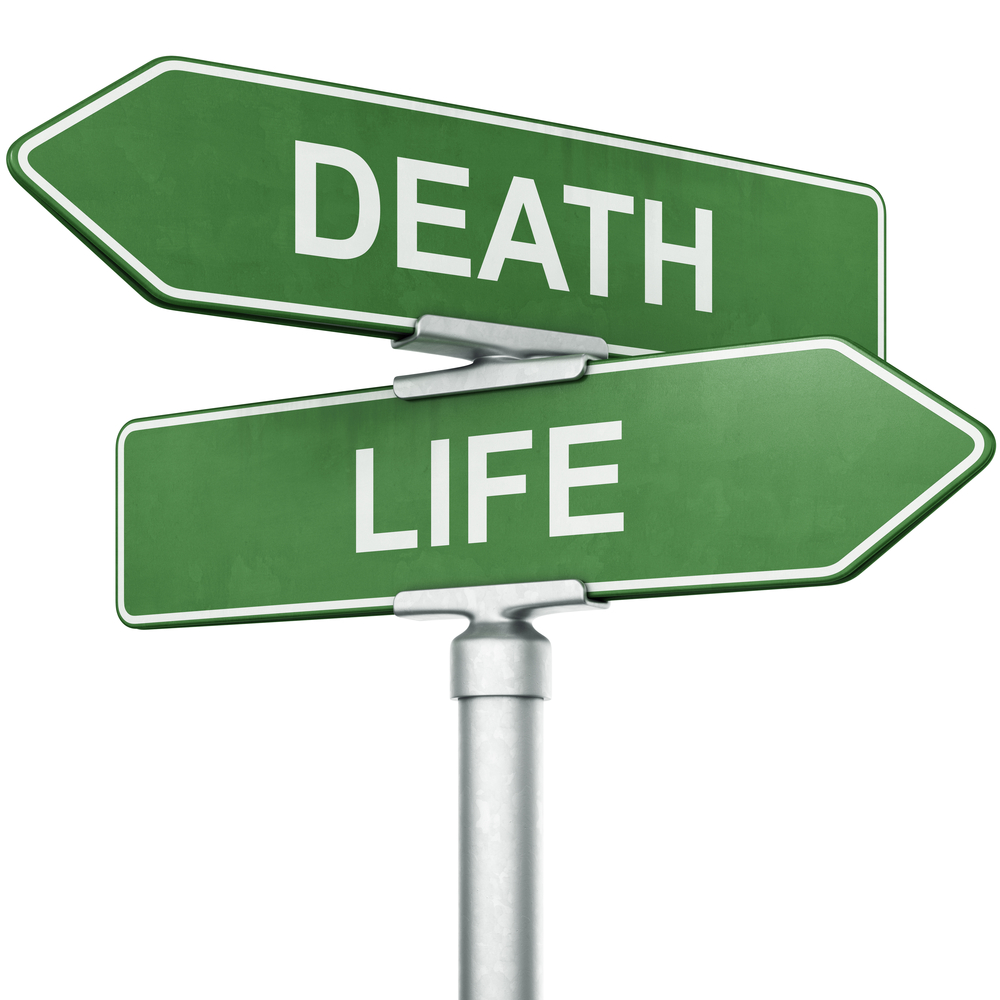Lifestyle
Matters of Life and Death
“Nothing is certain but death and taxes.” We all know how the adage goes. Many a writer and poet have uttered the line declaring – decrying? – the certainty of these grim realities, in a world in which everything else seems so horribly uncertain.
This rather fatalistic and more than slightly pessimistic proverb draws on the inevitability of death to point out the difficulty in avoiding the burden of taxes. The saying, or a variation thereof, is first attributed to Daniel Defoe, in The Political History of the Devil, 1726, in which he said: “Things as certain as death and taxes, can be more firmly believed.”
The most popular version, perhaps, is credited to Benjamin Franklin (1706-90), who used the phrase in a letter to Jean-Baptiste Leroy in 1789, which was re-printed in The Works of Benjamin Franklin in 1817: “‘In this world nothing can be said to be certain, except death and taxes.”
By further parallelism, then, can we liken the tax collector to the Grim Reaper, as well? Hmmm…fodder for thought.
Then there is that famous line from Margaret Mitchell’s well-loved 1936 classic, Gone with the Wind:”Death, taxes and childbirth! There’s never any convenient time for any of them.”
Whatever your religion (or lack thereof), political leaning, upbringing, social standing, educational attainment, echelon in life, etcetera: death will certainly come. And it will most likely be inconvenient; if not for you, for those left to deal with the repercussions of your demise.
This is not an exercise in the morose, mind you. Perhaps, it is simply a reality check.
Skulls and bones
The reality of our mortality is something of which I remind myself on a daily basis. Why? Beyond the reason of “’coz I’m a Goth-girl, like that,” It helps me live each day to the fullest. Ironic, that the reality and certainty of death propel me to live life to the best that I can.
This is why I am so fascinated with skulls and bones – I have this design on most everything I own; from fashion to furniture, and everything in between. These symbols, generally perceived as “dark art”, serve to remind me that I won’t be around forever.
You see, in my opinion, there is nothing more tragic than those who are of the “living dead”: alive, but not truly living. This, to my mind, is fate worse than death and a terrible waste of the gift of life. We all have reasons to be apathetic, unfeeling, indifferent; some more than others. But by that same token, we also all have reasons to care and feel; to be exuberant and joyful. It really all boils down to which side we allow to rule over us in greater measure. I’d like to think I allow the latter to rule over me more than the former; although I would be a liar to say I do not have more than my fair share of “living dead; the-world-is-dead-and-I would-rather-be-too” moments. But I do what I can to shift focus back to the good and the worthwhile. Easy? Nope. Necessary? Yes!
Then what?
So what happens after the big “D” comes around? We all know what happens after the big “T’ comes around: improved public service and infrastructure, or fatter politicians; largely dependent on which part of the globe you reside.
But what lies beyond the big “D”? That is still highly debated.
There are those who believe that man is a three-part being: spirit, soul and body. To be accurate, we ARE a spirit, we HAVE a soul, and we LIVE in a body. Whereas the soul is made up of a person’s mind, will and emotions, the spirit is the part that is immortal. The soul is the person’s unique imprint, while the spirit is one’s very essence. The body is akin to an “earth suit,” enabling the spirit to live in a mortal, earthly world, for as long as the person is earth-bound. The spirit is what breathes life, and once this is gone – after death – then only the shell of the person remains; the empty suit, no longer needed.
This concept of the eternal nature of humanity is present in a majority of religions worldwide: Christianity, Judaism, Buddhism, Hinduism, Islam, for instance, all ascribe to the immortal spirit.
I have had one up-close encounter with death. It was many years back, during the time that I worked full-time on staff at a Christian church. I taught at the Bible school, helped out with office administration, and worked with the youth group. One of our youth leaders was killed in a tragic car wreck. Her mother, too distraught to cope with the situation, asked me to help dress her daughter. It came as a shock to feel how cold and hard her flesh was to the touch. The reality hit me like a ton of bricks: here lay her empty shell; once made alive, and warm, and fleshy by her spirit; but no longer.
What happens after the spirit leaves the body is largely subject to a person’s beliefs: Heaven or Hell (for Christians); Purgatory (the Catholic option; the concept is also present in Islam beliefs); Nirvana (the Buddhist equivalent of Heaven, or the “final goal); “Moksha”, in which the soul is released after death, to join the Cosmic Buddha.
To delve deeply into the foundational beliefs of the religions of the world would fill up the pages of a book, and impossible to do within the limits of my word count.
In passing, I will briefly mention that the journey of the spirit between life and the afterlife is also primarily dependent on spiritual or religious inclinations. Christians subscribe more to the “direct flight” to Heaven or Hell, depending on your relationship with the Almighty. Catholics may opt for a “layover” in Purgatory. Many Eastern religions posit the theory of reincarnation, in which the spirit comes back and becomes earth-bound as many times as needed to atone for your sins, until such time that you are deemed worthy and freed from this karmic cycle. I have to admit, that although this notion sounds exotic and intriguing, it also strikes me as tiring and tedious. Plus, I cannot see myself coming back as something like a dung beetle. Or worse, a politician or tax collector. Tee-hee.
Then there are those of the persuasion that there is nothing that lies beyond the grave but worms, dirt, and decay. I was talking with someone recently, and this person shared their views that the end of our earthly journey is simply THE END. Period. The person with whom I was speaking likened it to switching off a TV set: there is a moment of static or white noise, perhaps, then, nothing. People are entitled to their own opinions and beliefs, I suppose.
As for me, I do not think I could ascribe to this, and still live life to the fullest. I believe there has to be more; such complex creations cannot simply fade to black and oblivion. That’s where I stand, anyways.
Between the living and the dead
Quite possibly one of my favorite Bible verses to refer to, in the discourse of life and death, is found in the book of Numbers. You can choose to zone me out, should you be of more agnostic leanings, or you can read on and filter what you please. The verse is from Numbers 16, and I will begin a few verses before, for context:
46 And Moses said to Aaron, “Take your censer, and put fire on it from off the altar and lay incense on it and carry it quickly to the congregation and make atonement for them, for wrath has gone out from the LORD; the plague has begun.” 47 So Aaron took it as Moses said and ran into the midst of the assembly. And behold, the plague had already begun among the people. And he put on the incense and made atonement for the people. 48And he stood between the dead and the living, and the plague was stopped.
Verse 48 is really what I want to highlight. Many teachers use this in reference to those “anointed” to “mediate” between the “lost” (those who do not “know the Lord”) and the “saved” (those “who do.”) The lit censer represents the spirit of man, ignited by the fires of God’s Spirit (the altar).
This is all well and good, and it also serves the church’s evangelistic purposes. I would, however, like to bring it forth this way: Aaron is all of us; EACH of us, to be more precise. Every day of our mortal lives, we stand between life and death. Our existence always hangs in the balance between life and death; for the reality is, we do not know when death will come. And this uncertain certainty is probably one of the biggest things that “plagues” us. But with our spirits aflame, and raised high, we can bring an end to the things that plague us: challenges, problems, setbacks, and the very fear of death itself. Your spirit, set afire by the Eternal Spirit, can overcome the plagues. This allows you to stand – not waver or falter– between life and death. And as you stand, allowing your spirit to blaze and burn bright in this fragile existence, others are encouraged to truly live, as well.






















